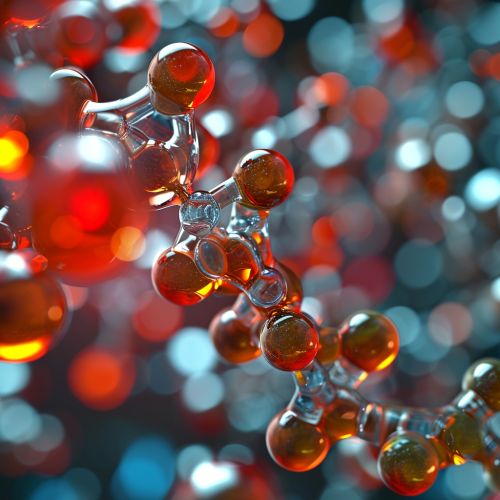Ecdysone Agonists
Overview
Ecdysone agonists are a class of insecticides that mimic the action of the natural insect molting hormone, ecdysone. These compounds are used in agriculture and horticulture to control a wide range of insect pests. They work by disrupting the normal molting process in insects, leading to their death.


Structure and Function
Ecdysone agonists are synthetic compounds that have been designed to mimic the structure and function of the natural insect hormone, ecdysone. Ecdysone is a steroid hormone that is produced in the prothoracic glands of insects. It plays a crucial role in the molting process, which is the shedding of the old exoskeleton and the formation of a new one.
Ecdysone agonists bind to the ecdysone receptor in the insect's cells, triggering a premature and lethal molting process. This is because these synthetic compounds are more potent than the natural hormone, causing an overstimulation of the molting process that the insect cannot survive.
Types of Ecdysone Agonists
There are several types of ecdysone agonists, each with their own specific properties and uses. Some of the most commonly used ecdysone agonists in agriculture and horticulture include:
- Tebufenozide: This is a highly specific ecdysone agonist that is used to control lepidopteran pests, such as caterpillars and moths. It is non-toxic to humans and beneficial insects, making it a popular choice for integrated pest management programs.
- Methoxyfenozide: This is another lepidopteran-specific ecdysone agonist. It is used to control a wide range of caterpillar pests in crops such as cotton, soybeans, and vegetables.
- Halofenozide: This ecdysone agonist is used to control beetle larvae in turf and ornamental plants. It is also used to control white grubs in lawns.
Applications
Ecdysone agonists are used in a wide range of applications in agriculture and horticulture. They are particularly effective against lepidopteran pests, which include a wide range of destructive caterpillar species.
These insecticides are often used as part of integrated pest management programs, where they are combined with other control methods to achieve effective and sustainable pest control. Their specificity and low toxicity to non-target organisms make them a valuable tool in these programs.
Environmental Impact
Ecdysone agonists are considered to be environmentally friendly insecticides. They are highly specific to their target pests, meaning they have minimal impact on non-target organisms, including beneficial insects and mammals.
In addition, these compounds are rapidly degraded in the environment, reducing the risk of residues and environmental contamination. However, like all insecticides, their use should be carefully managed to minimize any potential negative impacts.
Future Developments
Research is ongoing into the development of new ecdysone agonists with improved properties and efficacy. This includes the development of compounds with a broader spectrum of activity, as well as those with improved environmental profiles.
